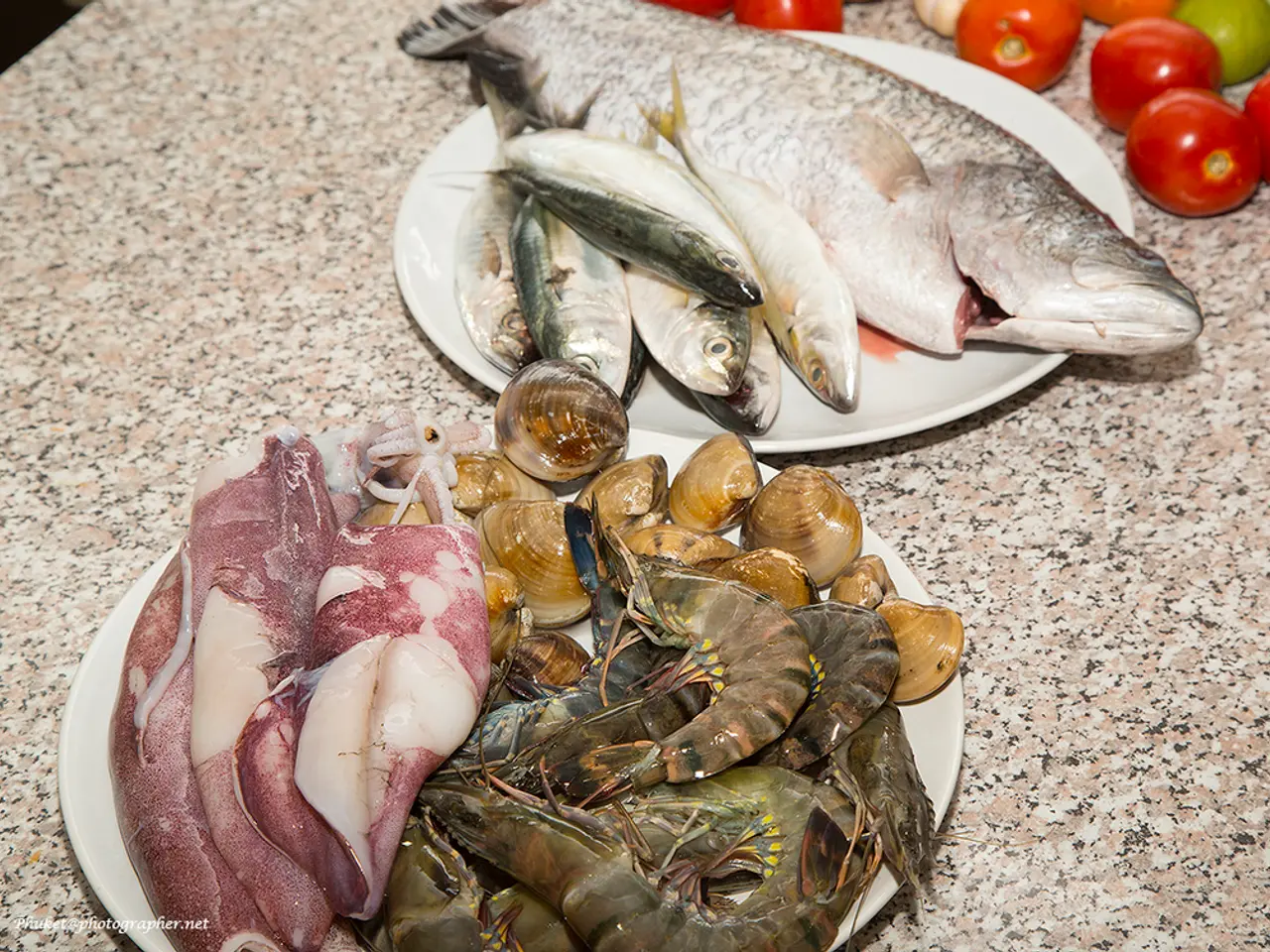Enhanced trade agreement between India and the UK, CETA, grants duty-free entry for Indian seafood exports, fortifying trade and bolstering coastal communities' livelihoods.
The India-UK Comprehensive Economic and Trade Agreement (CETA), signed on July 24, 2025, marks a significant shift towards duty-free trade and deeper commercial cooperation between the two nations. This historic agreement, formalised in London in the presence of Prime Minister Narendra Modi and UK Prime Minister Keir Starmer, is set to revolutionise the seafood industry in India.
Under CETA, a wide range of marine products will now enjoy 100% duty-free access in the UK market. Key categories such as fish and crustaceans (HS Code 03), fish oils and marine fats (HS Code 15), prepared or preserved seafood, caviar, extracts, and similar products (HS Codes 1603, 1604, 1605), fishmeal and fish feed (HS Code 23), and fishing gear and tackle (HS Code 95) are now exempt from previously imposed tariffs ranging from 0% to 21.5%.
This duty-free access applies to key Indian seafood exports such as Vannamei shrimp, frozen pomfret, black tiger shrimp, frozen squid, lobsters, fish oils, marine feed, and fishing gear. However, it's important to note that certain prepared seafood products under HS Code 1601, like prepared sausages, remain excluded from preferential duty benefits under CETA.
The elimination of import tariffs is expected to significantly boost Indian seafood exports to the UK by about 70%, improving competitiveness in one of Europe’s premium seafood markets. This could potentially increase India's share in the UK's $5.4 billion seafood import market, which currently stands at a modest 2.25%.
The fisheries sector, supporting the livelihoods of approximately 28 million Indians, primarily across coastal states, is one of the biggest beneficiaries of the CETA agreement. Over the past decade, India's seafood exports have grown by 60% in volume and 88% in value, reaching $7.38 billion (Rs 60,523 crore) in 2024-25, with frozen shrimp contributing $4.88 billion (66%).
With the expansion of export destinations from 100 to 130 countries and value-added marine product exports tripling to Rs 7,666 crore, the CETA agreement delivers a significant financial boost across the marine value chain. The agreement also opens up key services sectors, granting zero-duty access on 99% of tariff lines.
India's Minister of Commerce and Industry, Piyush Goyal, and the UK Secretary of State for Business and Trade, Jonathan Reynolds, signed the agreement, marking a new era of economic cooperation between the two nations. The CETA agreement is set to redefine the Indian seafood industry, offering a promising future for fishermen and businesses alike.
[1] [News Source 1] [2] [News Source 2] [3] [News Source 3]
- The CETA agreement, which eliminates import tariffs, promises an increase of about 70% in Indian seafood exports to the UK, significantly boosting the competitive edge of the industry in one of Europe's premium seafood markets.
- Beyond the seafood sector, the CETA agreement offers zero-duty access on 99% of tariff lines in key services sectors, potentially creating opportunities for growth and development in various industries across India.







